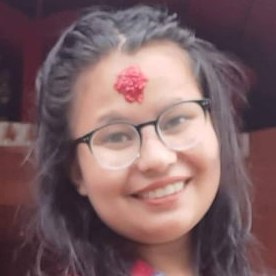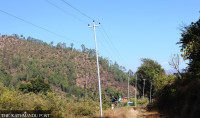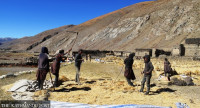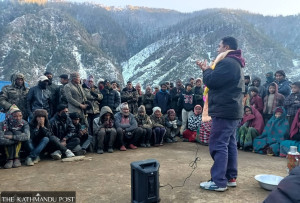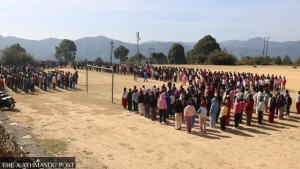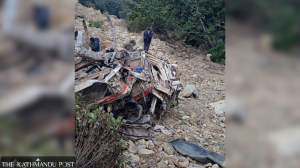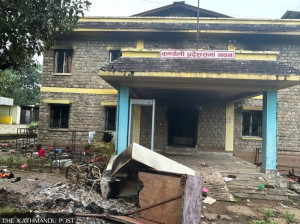Karnali Province
Religious schools in Karnali are struggling to stay afloat
Without any support from the government, the seven gurukuls, five madrasas and four gumbas in the province are relying on donations to survive.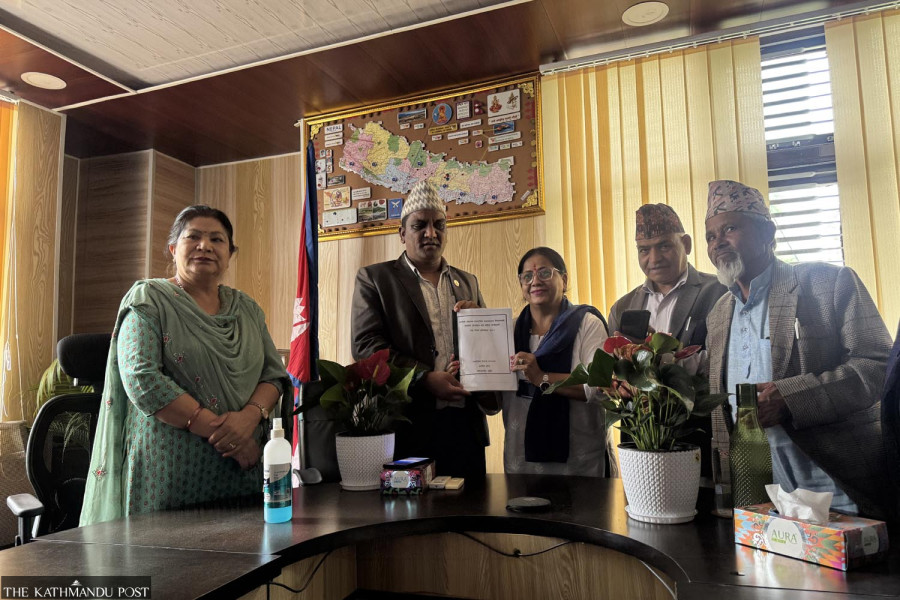
Tripti Shahi
Religious schools in Karnali Province—including gurukuls (Hindu), madrasas (Muslim) and gumbas (Buddhist)—are struggling for smooth operation under severe financial and infrastructural hardship.
According to a recent study conducted by a taskforce formed by the provincial Ministry of Social Development, educational activities have been severely affected in the religious schools due to acute shortage of funds and infrastructures.
The seven-member taskforce was formed under the leadership of Deepa Hamal, director of the Education Development Directorate, including representatives from gurukuls, gumbas, madrasas and academic experts. The task force spent four months surveying these institutions across Karnali, the country’s remotest and largest province in the area, and submitted its study report last week.
The report, submitted to Social Development Minister Ghanshyam Bhandari, highlights several critical issues like the inability of schools to pay teachers’ salaries, dilapidated physical infrastructures, lack of proper teacher management and a severe shortage of educational materials. In some cases, financial crises have even forced such religious educational institutions to shut down.
The report shows that many such schools lack basic amenities and facilities including toilets, drinking water, playgrounds, libraries, laboratories and essential learning materials which make it difficult for both teachers and students. Despite their vital cultural and educational roles, these religious institutions are not included in government policies, programmes or budgets.
It is found that these schools are currently operating through donations and community fundraising. Salaries of the teachers and other staff are also paid from public donations as there is no direct financial assistance from the federal, provincial or local governments.
“The religious educational institutions run solely on public generosity. Some of them have even been closed due to lack of funds. Without government support through policy and budgeting, management of such institutions cannot be sustainable,” said Hamal, the task force’s coordinator. “Skilled and subject-wise teachers cannot be managed in the religious schools due to the financial crisis. The task force suggests that the government should include such schools in its policies, programmes and budgets.”
Karnali Province currently has 16 religious schools—seven gurukuls, five madrasas and four gumbas. These institutions are in operation in Surkhet, Dailekh, Salyan, Kalikot, Jajarkot, Jumla and Dolpa districts. According to the task force, there are a total of 965 students who are taught by 90 teachers. The task force found that one Gurukul in Tallo Dungeshwar of Dailekh had been closed due to financial problems.
Ahmed Razzak, a task force member representing Madrasa, said that the religious schools in the province are in dire condition under shortage of funds and infrastructures. According to him, such institutions are sustaining only through donations. He underscored the need of government’s support to sustain such institutions.
The task force is alarmed upon seeing the dilapidated physical infrastructures of the religious schools in the province. Deepak Gautam, an education expert in the task force, asserted that the religious schools were marred by the poor state of school buildings and the absence of qualified teachers. “There is an urgent need for government investment in these schools,” he said.
The Karnali provincial government assures us to take initiatives for the sustainable management of the religious schools. Minister Bhandari said the report would be instrumental in formulating supportive policies and allocating budgets for religious schools. “The goal of this study was to understand how the government can regularly support institutions currently reliant on donations,” he said. “The findings clearly outline the problems which will make it easier to address them. The government will now facilitate support.”
The report has made several recommendations. It suggests integrating religious schools into the education policies at all levels of government; introducing science, information technology and practical subjects; providing lump-sum grants for teacher management; investing in infrastructures; ensuring the provision of teachers for core subjects and implementing modern technology within these schools in the report.
The establishment and operation of religious schools such as Gurukul of Hindu community, Madrasas of Muslim community and Gumbas of Buddhist community are legally permitted under the broader framework of the national education system. The Constitution of Nepal guarantees the right to establish and operate schools, including those with religious affiliations, provided they do not impart education with the intent of religious conversion.
The Education Act-1971 and its subsequent amendments also states that religious schools can operate if they meet the basic requirements of the national curriculum. However, such religious educational institutions are flagging across the country due to shortage of funds and infrastructure.




 9.12°C Kathmandu
9.12°C Kathmandu